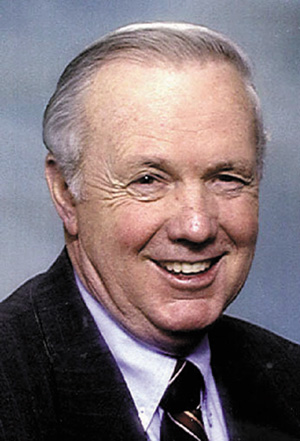No. 524 - WE CAN'T PICK OUR KINFOLKS!
No. 524
Jim Davidson Ñ NEWSPAPER COLUMN
WE CAN'T PICK OUR KINFOLKS!
If you will take time to read this column and really think about what I am going to say, you may never look at other people the same way again. There is an old saying that goes, "We can pick our friends, but we can't pick our kinfolks." Every time you look at another human being in the future, just stop to realize that this person had absolutely no control over who their parents were, where they were born, the color of their skin and all the other factors that distinguish this individual for all others, and makes them a unique one-of-a-kind person. If you are healthy, wealthy and wise, just count your lucky stars, but never look down on others because they were not so lucky.
Several months ago, Eva Easley, one of my faithful readers in Bluefield, W.Va., wrote to tell me about a wonderful book titled, "Gifted HandsÉThe Ben Carson Story." Knowing about our "Bookcase for Every Child" project, she suggested I get a copy of this book and read it. That same day before the sun had set, it was already ordered and on its way. In relation to what I said earlier about not being able to pick our kinfolks, after reading this book I determined that it was really a textbook for any project like the one we are conducting here in our community.
Ben Carson grew up in a ghetto in Detroit, Mich. When Ben was 8 years of age, his mother learned that his father had "another" family. After the divorce, things were really hard for Ben, an older brother, and his mother, who had only a third-grade education, but she worked two or three jobs to provide for them. The school Ben attended in the early years was made up of mostly white students, and Ben was black. Because he was not doing well, some of the other students called him "dummy." Ben's mother was a strong believer in the value of education, and when she learned of this she laid the law down to him.
She said, "From now on, you can watch only two or three television programs a week and you must read two books." While he grumbled for a time, Ben followed his mother's instructions. One of the things that motivated him was a television program that was on back in those days called "College Quiz Bowl." Ben wanted to be on that program, but he knew he would have to have a well-rounded education to compete successfully. Soon he began to listen to classical music, go to art galleries, attended plays and other cultural events. He also read books on everything he could find that would broaden his range of knowledge.
While he never made it to the College Quiz Bowl, here was the payoff. In high school, many of the same students who used to call him "dummy" were now coming to Ben asking him for help with their studies. He also became involved in the ROTC program at his school and made it all the way to the rank of colonel before he graduated. As a result, Ben was offered a full scholarship to West Point, but turned it down because he had decided that he wanted to become a doctor. He was also offered a full scholarship to Yale University, where he graduated and would then go on to the Michigan School of Medicine.
Today, Dr. Ben Carson is head of the pediatric neurosurgery department of Johns Hopkins Medical Center in Baltimore, Md. He also led a team of surgeons who performed the only, at the time, successful surgery to separate Siamese twins who were joined at the head, where both lived.
Several times in speeches I have told this story and it's hard for me to keep from being emotional. I just realize that there are millions of young children like Ben Carson in low-income housing units all across the nation who have the same potential if someone could reach them with the message of reading and literacy. That's what we are tying to do with our bookcase project.
ÑÑÑ
(EDITOR'S NOTE: Jim Davidson is a motivational speaker and syndicated columnist. You may contact him at 2 Bentley Drive, Conway, AR 72034.)
